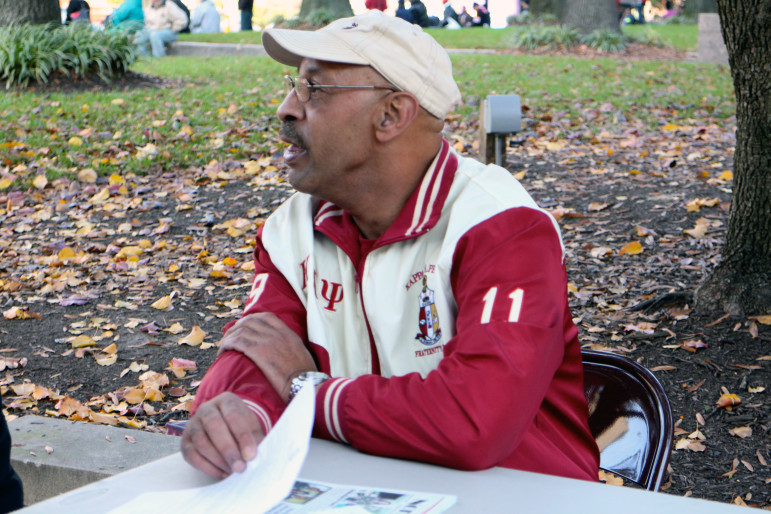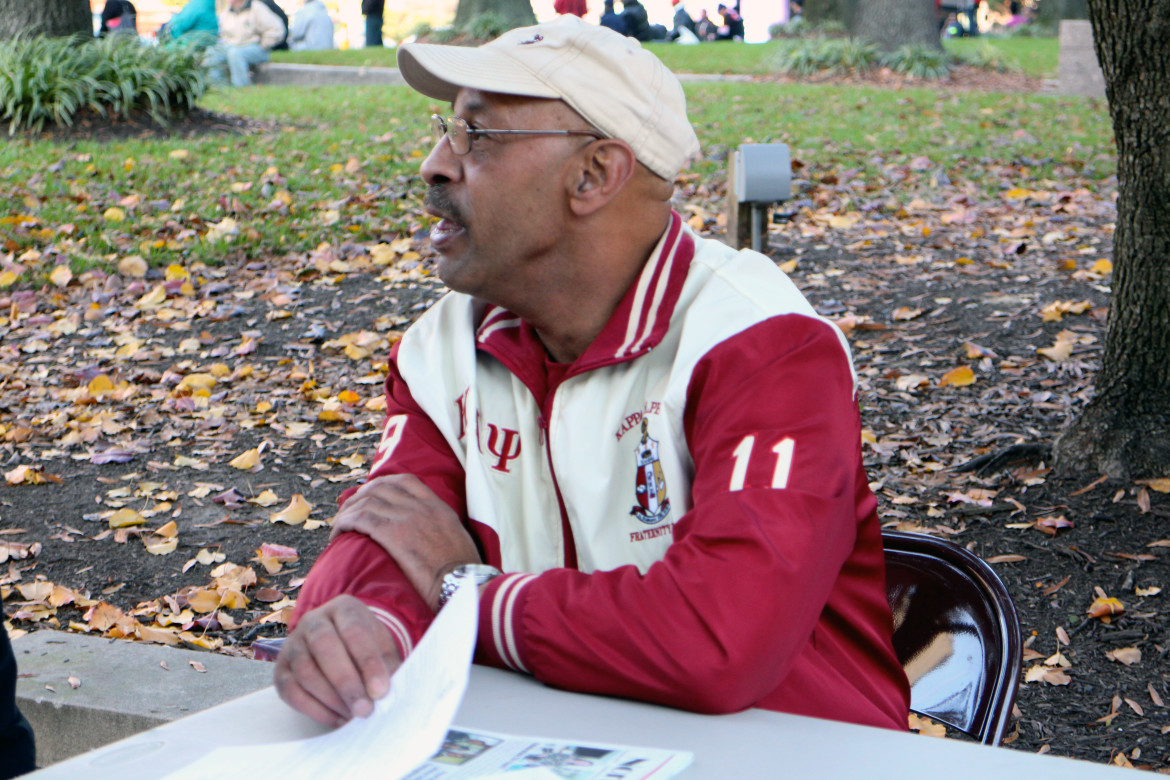
Photo by Sarah Barr
Richard Walker of Richmond, Virginia, has helped people get back their right to vote after a conviction.
See our continuing coverage of disenfranchisement here.
* * *
Voting in Virginia just got easier for more than 200,000 people with felony records.
Under an executive order signed today, all former felons who have completed their full sentences as of today can immediately re-register to vote, the latest move by Gov. Terry McAuliffe, a Democrat, to ease the rights restoration process.
“If we are going to build a stronger and more equal Virginia, we must break down barriers to participation in civic life for people who return to society seeking a second chance. We must welcome them back and offer the opportunity to build a better life by taking an active role in our democracy,” McAuliffe said in a news release.
Those with records previously had to apply individually to the state to have their rights restored, sometimes after a waiting period of years depending on their crime’s severity. Some had to navigate forms, find certified copies of their sentencing orders and get a letter from their probation or parole officers.
Advocates of enfranchisement for former felons reported that the process often was discouraging — if people even knew they could eventually regain their right to vote.
Nationwide, more than 5 million U.S. citizens cannot vote because they have a felony conviction on their record, a policy that disproportionately affects black men, according to The Sentencing Project, a research and advocacy organization. Some states automatically restore voting rights, while others require individuals to petition the governor.
Felony disenfranchisement laws can affect people from voting even before they turn 18, if they are charged as adults or live in a state that prosecutes all 16- or 17-year-olds as adults.
[Related story: Regaining Right to Vote: For NY Ex-Inmates, It’s a Maze]
Virginia has long been one of the strictest states in the nation when it comes to restoring voting rights to felons. But a series of executive orders, beginning under Gov. Bob McDonnell, a Republican, and continuing under McAuliffe, have made it easier.
In Virginia, a felony disenfranchisement law has been on the books since the Civil War. Some political leaders have been explicit that the law was intended to prevent black voters from going to the polls, according to a summary by the state. All told, the law prevents 20 percent of the black population from voting in Virginia.
“Thus, despite the progress Virginia has made erasing the vestiges of slavery and segregation on so many fronts, this law continues to disenfranchise racial minorities and other citizens who have paid their debt to society and are otherwise qualified to vote,” the summary said.
The policy change quickly provoked political blowback, in part because opponents see it as a bid to add more Democratic voters to the rolls before the presidential election.
[Related story: North Carolina Reentry Group Helps with Housing, Jobs and Civil Rights]
“It is hard to describe how transparent the governor’s motives are. The singular purpose of Terry McAuliffe’s governorship is to elect Hillary Clinton president of the United States,” said Virginia House Speaker William J. Howell, a Republican, in a statement. He also said the policy oversteps executive authority and that rights restoration should not be automatic.
“That policy should take into account the nature of the crimes committed, whether they have paid back their victims and the court system, and their willingness to serve as productive members of society,” Howell said.
The president of the NAACP, Cornell William Brooks, said in a statement, “History shows when people are denied the right to vote, the loss of representation weakens our neighborhoods and communities, and furthers systemic inequality. ... we hope more states follow Governor McAuliffe’s lead. Restoring voting rights to incarcerated individuals who have served their time is an imperative to a fair and just democracy while punitive measures only serve to further disenfranchise and isolate ex-offenders.”
McAuliffe plans to issue monthly executive orders restoring ex-felons’ right to vote. A future governor could overturn his decision.

Hurray for Terry McAuliffe and blessings on him!
I have not known a lot of convicted felons but I knew one in Delaware whom Pete DuPont had pardoned–I think a very unusual act. Any pardoning was one at a time, and for extraordinary cause. Mike was one of the finest men I knew.
Think of 200,000 people who had served their time and been released only to live with the shame of felon on them preventing them from getting jobs they were qualified for, year after year. This is a movement long overdue, and hurray for McAuliffe, again, for taking the lead so boldly and mercifully.
And who was McAuliffe’s Republican opponent in the race for governor of the Commonwealth?
Republican Ken Cuccinelli II
Voting matters.
“McAuliffe won a contest in which many voters said they were voting for the Democrat mainly to take a stand against Cuccinelli, 45, whom McAuliffe portrayed as driven by faith and political philosophy to absolutist positions against abortion rights, same-sex marriage, higher taxes and a larger government role in health care.” Faith? No, bigotry.
Voting matters.